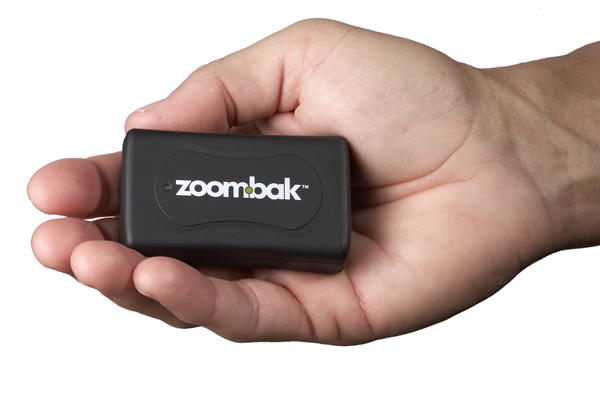 |
Computing March 2010 |
| When GPS Is Not Enough |
By John R. Quain |
| Zoombak adds cell data to improve tracking |
|
|
 The idea that one can locate and track just about anything--your car, your dog, your spouse--using GPS is part of popular lore. Unfortunately--or fortunately, depending on your point of view--that's not true. GPS signals can be obscured or blocked. So Zoombak, makers of a popular portable GPS tracking device used in cars, has added another, seldom -used tracking source to its models to aid in the location of vehicles: the cell phone signal. The idea that one can locate and track just about anything--your car, your dog, your spouse--using GPS is part of popular lore. Unfortunately--or fortunately, depending on your point of view--that's not true. GPS signals can be obscured or blocked. So Zoombak, makers of a popular portable GPS tracking device used in cars, has added another, seldom -used tracking source to its models to aid in the location of vehicles: the cell phone signal.
Called Locate Assist, the new feature is intended to supplement the regular GPS signal. Like most portable or built-in tracking systems, Zoombak uses GPS signals to determine the speed and location of a device to within a few feet. To transmit that information it then uses a cell phone signal to send the data back to computers online where owners can follow its trail.
As more and more people have begun to rely on systems like Zoombak's to monitor teenage driving habits or to alert them when their car has been stolen, the shortcomings of GPS have become clear. In the concrete corridors of major metropolitan areas, GPS reception can be spotty. And if, say, a thief wants to hide you car until it gets chopped into parts, he can hide it in a parking garage to escape GPS detection. According to Zoombak, some users report being unable to determine a location as often as 40 percent of the time. Consequently, the company has decided to use cellular information to improve location rates. (Better yet, because the new tracking feature takes advantage of the cellular technology already in Zoombak devices it will be offered to owners free of charge as an over-the-air software upgrade.)

. J-Q.com
|
